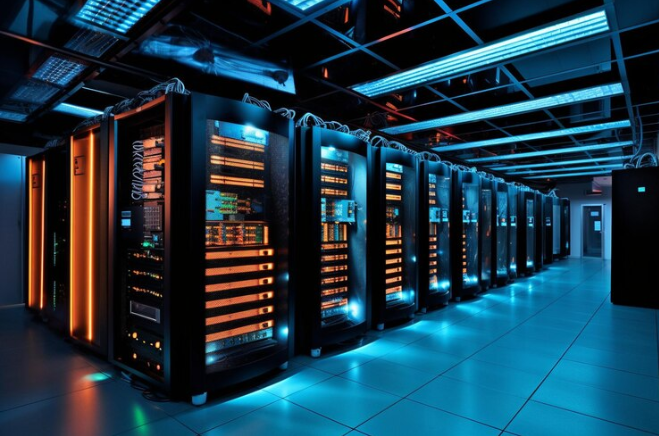In the intricate web of modern business operations, where data is the lifeline of every activity, the significance of a robust storage infrastructure cannot be overstated. Network-Attached Storage (NAS) systems have emerged as quintessential tools for not just storing data, but for strategizing its availability, security, and seamless integration within an organization. This comprehensive guide is tailored for enterprise-level professionals who handle the crucial task of maintaining and innovating IT infrastructures.
Understanding NAS Systems
At the core, NAS systems are dedicated file storage devices that provide local area network (LAN) nodes with file-based data storage services via standard Ethernet connections. Unlike conventional cloud storage models, NAS systems are more flexible, allowing access to multiple clients and various operating systems within a local network.
- Key Benefits of NAS
In the context of modern business operations, NAS excels in its simplicity and effectiveness. They offer a cost-effective way to access and share files across different devices and can be a solid alternative to more complex and expensive storage area networks (SANs).
The key features that make NAS systems vital to businesses include:
- Scalability: The modular design of NAS allows for easy expansion of storage capacity as data needs grow.
- Ease of Use: Intuitive interfaces make NAS a user-friendly option, often with minimal IT support required.
- Redundancy and Reliability: NAS commonly supports RAID (redundant array of independent disks) configurations, which ensures data protection against disk failure.
- High Availability: Many NAS solutions include features for continuous operation, such as failover and replication.
- Cost-Effectiveness: In most cases, NAS systems offer a more affordable means of storage than SAN or cloud alternatives.
The Impact on Business Continuity
For businesses, maintaining the sanctity of day-to-day operations in the face of natural or man-made disasters is paramount. Here's how NAS systems serve this pivotal function.
- Data Protection and Disaster Recovery
NAS systems play a key role in data protection, providing a convenient platform for both local and remote backups. These systems are often configured to store multiple copies of data in different locations, ensuring redundancy and streamlining recovery processes in case of data loss.
Case Studies:
- A regional hospital implemented a NAS solution for its backup and recovery needs. When a ransomware attack encrypted critical patient data, the hospital was able to restore all files to their pre-attack state without paying a ransom, ensuring patient safety and continuity of care.
- A financial institution utilized NAS for real-time data replication between two geographically separated data centers. When a hardware failure occurred at one site, the second data center seamlessly took over, averting financial loss and maintaining customer service levels.
Enhancing Security with NAS
Security is a multi-pronged challenge in the digital age, and NAS systems stand as bulwarks against data breaches and unauthorized access.
- NAS Security Features
Modern NAS solutions come equipped with a suite of security features, including:
- Access Controls: Role-based access control (RBAC) allows for granular management of user privileges.
- Encryption at Rest and in Transit: Data is protected from unauthorized viewing or tampering, both when stored and during transfer.
- Intrusion Detection and Prevention Systems (IDPS): These systems monitor network activity for malicious behavior and block threats in real-time.
Best Practices:
- Regular updates of NAS firmware and software are crucial for patching vulnerabilities.
- Strong password policies and the use of two-factor authentication (2FA) can prevent unauthorized access.
Scalability and Flexibility
The growth trajectory of any business is rarely linear, and storage needs are no exception. NAS systems offer an adaptable solution.
- Adapting to Changing Storage Needs
The modular architecture of NAS allows for the addition or replacement of hard drives without disrupting services, a capability that resonates well with businesses that experience periodic surges in data volume or require continuous storage expansion as part of their growth strategy.
Organizations that have successfully leveraged the scalability of NAS include:
- A media production company that saw a six-fold increase in their storage needs over a year, easily accommodated by their NAS system’s scalability without compromising on speed or access times.
- A legal firm that transitioned from paper-based to digital archives found the flexibility of affordable NAS storage vital in adjusting to the evolving landscape of data storage and retrieval within the legal industry.
Future Trends
With technology evolving at a rapid clip, the future of NAS systems holds promise for further enhancing business continuity and security.
- Emerging Technologies in NAS
The convergence of NAS with enterprise backup software and cloud storage is a trend to watch. This hybrid cloud NAS model combines the benefits of on-premises storage with the scalability and accessibility of cloud services.
Predictions:
- The integration of machine learning and AI into NAS systems is expected to streamline data management, forecasting and even preempting potential data loss events.
- Continuous advancements in blockchain technology might also see applications in the form of secure, immutable data storage within NAS architecture.
Conclusion
NAS systems are more than storage silos; they are the gatekeepers of business continuity and the guarantors of data security. For enterprises aiming at airtight operations and earning the trust of their customers, investing in a reliable NAS system may be the wisest move.
The call to action for businesses is clear: assess your storage needs, evaluate the potential of NAS, and take proactive measures to integrate these systems into your IT infrastructure. The dividends in terms of reliability, security, and operational resilience are well worth the investment.
